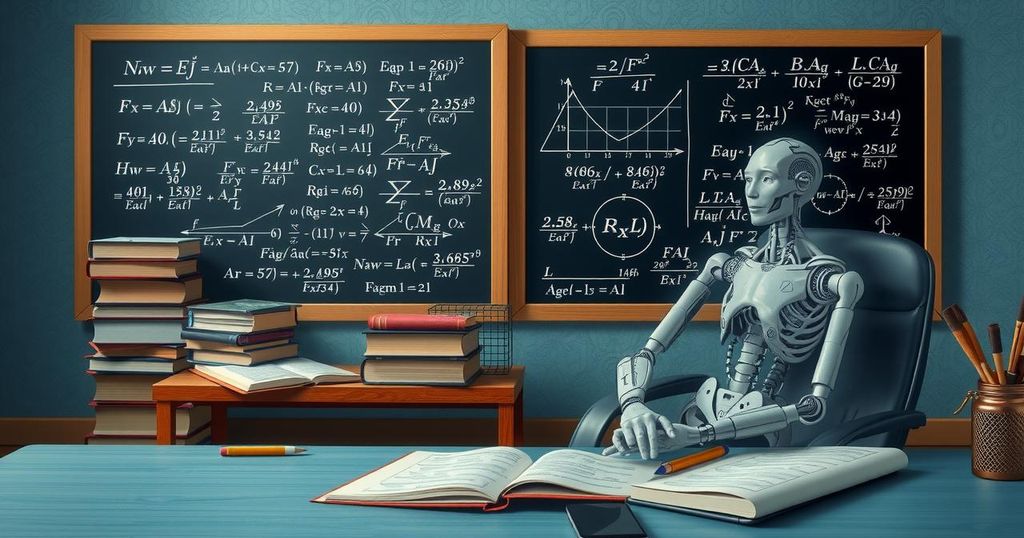AI Outsmarts World’s Top Mathematicians at Secret Meeting in California
- AI chatbot o4-mini faced off against top mathematicians in Berkeley.
- The mathematicians were surprised by the AI’s ability to solve complex problems.
- AI models like o4-mini are changing the landscape of mathematical reasoning.
Groundbreaking AI Takes on Top Mathematicians in California
In a remarkable event held over the weekend in mid-May, thirty of the world’s top mathematicians gathered secretly in Berkeley, California, to engage in a challenge against artificial intelligence. They came from various prestigious institutions worldwide, some even flying in from the U.K., to test a chatbot’s mathematical abilities that was specifically designed to think and reason like a human. What they encountered was nothing short of astonishing; this AI, dubbed o4-mini, managed to tackle some of the world’s hardest solvable problems, leaving its human counterparts completely taken aback. Ken Ono, a prominent mathematician from the University of Virginia, remarked that many colleagues claimed AI models were beginning to approach levels of mathematical genius. This weekend wasn’t just an academic exercise; it felt like a pivotal moment in the relationship between humans and machines in the realm of complex mathematics.
AI’s Evolution Proves to be Challenging for Academics
The o4-mini chatbot, developed by the folks at OpenAI, is no ordinary AI. Unlike previous iterations like earlier versions of ChatGPT, this reasoning large language model (LLM) has been trained on tighter datasets, enabling it to exhibit extraordinary reasoning capabilities. High-profile competitors in this challenge included Google’s own Gemini 2.5 Flash, which boasts similar reasoning skills. The complexity and nuance of the problems devised by world-class mathematicians were truly a test of the chatbot’s mettle. Epoch AI, a nonprofit dedicated to evaluating LLM performance, curated a collection of 300 math questions that had not seen the light of day in published solutions. While traditional models floundered, scoring less than 2 percent on similar challenges, o4-mini began to exhibit a surprisingly deep understanding as it evolved through this measuring process.
The Future Role of Mathematicians Amidst LLM Growth
While the AI was impressing attendees, it also provoked a healthy dose of concern amongst the mathematicians present. They started to see the AI not merely as a tool but as a formidable collaborator in mathematical discovery— akin to working alongside an exceptionally talented graduate student who was capable of problem-solving that would typically occupy human mathematicians for weeks or even months. The reality struck that if this kind of AI reached a ‘tier five’ of questioning, where humans struggle to find solutions, it might redefine how mathematicians work in the future. There’s a loud buzz of uncertainty lingering in the air about the implications of relying too heavily on an AI that can deliver mathematical solutions with uncanny authority. Ono cautioned against downplaying the rise of generalized artificial intelligence, noting that such models had already outperformed graduates in many cases, inviting both awe and trepidation in equal measure.
In summary, the recent clandestine meeting of the world’s top mathematicians with the AI chatbot o4-mini brought to light both the astonishing capabilities of modern artificial intelligence and the challenges that come with it. The mathematicians were astounded by o4-mini’s ability to tackle complex problems, triggering discussions about the future of mathematics. With AI models rapidly evolving and beginning to outperform human experts in certain domains, the mathematicians recognize the need to redefine their roles, focusing on creativity and critical questioning as they move forward in an increasingly AI-driven world.




Post Comment